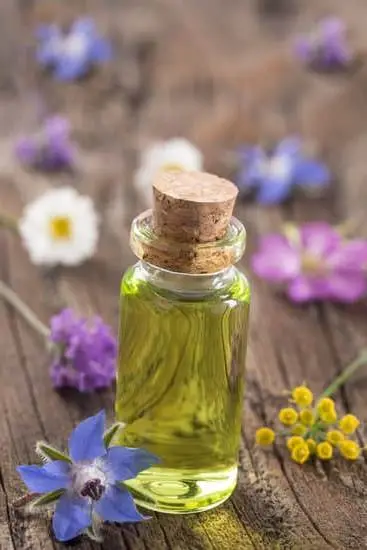Aromatherapy has been gaining popularity in Europe, with more and more people turning to essential oils and other aromatic products for their therapeutic benefits. As the demand for these products continues to rise, questions about their safety and regulation have also come to the forefront. In this article, we will explore how aromatherapy products are regulated in Europe, the key regulations and guidelines governing their production and sale, as well as the impact of Brexit on these regulations.
With the increased interest in natural remedies and holistic wellness, aromatherapy has become a go-to option for many individuals seeking relaxation and relief from various physical and mental health issues. However, ensuring the safety and effectiveness of aromatherapy products is essential, which is why regulation plays a crucial role in this industry.
The European Union (EU) plays a significant role in regulating aromatherapy products within its member states. The EU sets standards and guidelines to ensure that these products meet certain safety requirements before they can be marketed and sold to consumers. This includes establishing rules for labeling, ingredients, manufacturing practices, and product testing. Additionally, individual countries within the EU may have their own specific regulations regarding aromatherapy products.
The Importance of Regulation and Safety in Aromatherapy Products
Aromatherapy products have been growing in popularity across Europe, with more and more people turning to essential oils and other aromatics for their potential health and wellness benefits. However, with this increase in demand comes the need for strict regulation and safety standards to ensure that these products are safe for use.
Ensuring Quality and Safety
Regulation is crucial in the aromatherapy industry to ensure that consumers are not exposed to potential risks and hazards. This includes making sure that the ingredients used in these products are safe for use, as well as setting guidelines for labeling, packaging, and advertising. By implementing strict regulations, authorities can help guarantee that consumers are getting high-quality, safe products.
The Role of European Union
In Europe, the European Union plays a significant role in regulating aromatherapy products. The EU sets out guidelines and directives that member states must adhere to when it comes to the production, labeling, and marketing of these products. This includes ensuring that manufacturers comply with Good Manufacturing Practice (GMP) standards and the Registration, Evaluation, Authorisation and Restriction of Chemicals (REACH) regulation.
Challenges and Future Developments
While there are existing regulations for aromatherapy products in Europe, challenges still exist. These include issues with standardization across different member states and keeping up with rapid developments in the industry. Going forward, there is a need for continuous updates to regulations to reflect new scientific findings and emerging trends in aromatherapy product manufacturing. Additionally, with Brexit impacting regulatory frameworks within Europe, there may be further changes ahead for the industry.
The Role of the European Union in Regulating Aromatherapy Products
The European Union plays a crucial role in regulating aromatherapy products to ensure the safety and quality of these products in the market. Here are some ways in which the EU is involved in this process:
- Creation of Regulations: The European Union has established specific regulations and guidelines for the production, labeling, and marketing of aromatherapy products. These regulations aim to protect consumers from potential risks associated with using these products, such as skin irritation or allergic reactions.
- Harmonization of Standards: The EU works towards harmonizing standards for aromatherapy products across its member states, ensuring that all products meet the same safety and quality requirements. This helps create a level playing field for manufacturers and distributors while also ensuring consistency in product safety across Europe.
- Oversight and Enforcement: The European Union, through its various agencies and bodies, oversees the enforcement of regulations related to aromatherapy products. This includes conducting inspections, addressing non-compliance issues, and taking action against companies that fail to meet regulatory requirements.
- Consumer Information: Another important role of the EU is to provide consumers with accurate information about aromatherapy products. This includes education about proper usage, potential side effects, and how to identify safe and legitimate products on the market.
Key Regulations and Guidelines for Aromatherapy Products in Europe
When it comes to aromatherapy products, safety and quality are of utmost importance. In Europe, the regulation of these products is overseen by the European Union (EU), which has set key regulations and guidelines to ensure the safety and efficacy of aromatherapy products.
Key regulations and guidelines for aromatherapy products in Europe include:
- The European Cosmetics Regulation (EC) No 1223/2009, which lays down the rules for the safety assessment, labeling, and marketing of cosmetic products, including aromatherapy products.
- The EU Regulation on Biocidal Products (EU) No 528/2012, which regulates the placing on the market and use of biocidal products – including those used in aromatherapy – to ensure their safe use.
- Guidelines issued by the European Medicines Agency (EMA) for herbal medicinal products, including aromatherapy preparations that are classified as such.
These regulations help ensure that aromatherapy products are safe for consumers to use and meet certain standards for quality. They also provide guidelines for labeling and packaging requirements, as well as restrictions on certain ingredients that may be harmful or unsafe for use in these products.
Manufacturers of aromatherapy products must comply with these regulations and guidelines in order to place their products on the market in Europe. This includes obtaining necessary certifications and approvals to demonstrate compliance with the relevant regulations. Failure to comply with these regulations can result in penalties and product recalls, so manufacturers must take them seriously.
Overall, these regulations play a crucial role in ensuring that consumers have access to safe and effective aromatherapy products in Europe. They provide a framework for manufacturers to follow in order to bring their products to market while maintaining high standards of quality and safety. However, staying updated with any changes or developments related to these regulations is important for both manufacturers and consumers alike.
Compliance and Certification Requirements for Aromatherapy Product Manufacturers
Aromatherapy products are becoming increasingly popular in Europe, leading to a growing market for these items. With this growth comes the need for regulation and safety standards to ensure that consumers are using safe and effective products. This has led to the implementation of specific compliance and certification requirements for aromatherapy product manufacturers in Europe.
In Europe, aromatherapy products are regulated under the European Union’s (EU) Cosmetics Regulation. This regulation sets out the rules and requirements for the manufacturing, labeling, and marketing of cosmetic products, including those used in aromatherapy. Additionally, the EU’s REACH (Registration, Evaluation, Authorization, and Restriction of Chemicals) regulation ensures that all substances used in these products are safe for human health and the environment.
Manufacturers of aromatherapy products in Europe must comply with these regulations and obtain relevant certifications to demonstrate their adherence to safety standards. This often involves submitting safety assessments and toxicological profiles of the ingredients used in their products. Furthermore, companies must also ensure that their labeling and packaging meet the EU requirements to provide clear information to consumers about proper usage and potential risks.
It is important for manufacturers to stay updated on any changes or updates to these regulations as they can impact their ability to sell their products in the European market. Failure to comply with these requirements can result in significant fines or even product recalls, highlighting the importance of adhering to compliance and certification standards for aromatherapy product manufacturers in Europe.
| Regulation | Certification |
|---|---|
| EU Cosmetics Regulation | Demonstrate adherence to safety standards |
| REACH Regulation | Ensure safe use of substances in products |
The Impact of Brexit on Aromatherapy Product Regulation in Europe
Changes in Regulatory Framework
With the United Kingdom’s withdrawal from the European Union, there have been significant changes in the regulatory framework for aromatherapy products in Europe. Previously, the UK was part of the EU’s regulatory system for cosmetics and personal care products, including aromatherapy items. However, post-Brexit, the UK has implemented its own regulatory system for such products, diverging from the regulations set by the EU.
Challenges and Uncertainties
One of the main challenges resulting from Brexit is the uncertainty surrounding how aromatherapy products will be regulated and marketed in both the UK and the remaining European Union member states. This has led to concerns about potential disruptions to trade and compliance issues for manufacturers and distributors operating in both regions. The divergence in regulations also raises questions about whether businesses will need to comply with two sets of standards, adding complexity and cost to their operations.
Potential Harmonization Efforts
Despite these challenges, there are efforts to harmonize regulations between the UK and the EU to minimize disruptions for businesses and ensure consumer safety. The UK government has expressed a commitment to maintaining high standards for cosmetics regulation, which includes aromatherapy products.
There is also ongoing dialogue between regulatory authorities in the UK and EU to align requirements where possible. However, it remains to be seen how successful these efforts will be and whether a comprehensive agreement on mutual recognition of standards can be achieved.
Overall, Brexit has had a significant impact on the regulation of aromatherapy products in Europe, prompting changes in the regulatory framework, creating uncertainties and challenges for businesses, and spurring efforts towards harmonization between the UK and EU regulations. As developments continue to unfold, stakeholders in the aromatherapy industry must stay informed about evolving regulations on both sides of the Brexit divide.
Case Studies of Aromatherapy Product Regulation Success and Challenges in Europe
In recent years, the popularity of aromatherapy products in Europe has soared, with more and more people turning to essential oils and other natural remedies for various health and wellness benefits. With this increasing demand, it has become crucial to ensure that these products are regulated and safe for consumers. This section will explore some case studies of both success and challenges in the regulation of aromatherapy products in Europe.
One notable success story in aromatherapy product regulation in Europe is the implementation of the EU Cosmetics Regulation. This regulation sets strict guidelines for the safety assessment and labeling of cosmetic products, including aromatherapy products such as essential oils and aromatic blends. As a result, consumers can have confidence that products bearing the “EU compliant” label have undergone rigorous testing and meet high safety standards.
However, there are also challenges in regulating aromatherapy products in Europe, particularly when it comes to online sales and cross-border trade. With the growing trend of e-commerce, it has become increasingly difficult to monitor the influx of unregulated or counterfeit aromatherapy products entering the European market. This poses a significant challenge for regulatory authorities in ensuring that consumers are protected from potentially harmful or fraudulent products.
Another case study involves the varying regulations across different European countries. While there are overarching regulations at the EU level, individual countries may have their own additional requirements for aromatherapy products. This can create confusion for manufacturers and distributors who must navigate through a complex web of regulations to ensure compliance across multiple markets. As a result, harmonizing regulations at both EU and national levels remains a challenge in ensuring consistent standards for aromatherapy products across Europe.
Future Trends and Developments in Aromatherapy Product Regulation in Europe
As the demand for aromatherapy products continues to grow in Europe, there are several trends and developments in product regulation that are worth noting. One of the key trends is the increasing focus on sustainability and environmental impact. With a greater awareness of climate change and eco-friendly practices, there is a push for aromatherapy product manufacturers to use sustainable sourcing methods for their raw materials, as well as environmentally friendly packaging.
Another trend in aromatherapy product regulation is the incorporation of digital technology. Regulatory bodies are exploring ways to utilize digital tools for better monitoring and enforcement of compliance with safety standards. This includes the use of blockchain technology for traceability of raw materials, as well as digital platforms for streamlining the certification process for manufacturers.
In addition, there is a growing emphasis on consumer education and transparency. The European Union is working towards implementing labeling requirements that provide consumers with clear information about the ingredients used in aromatherapy products, as well as any potential safety warnings or contraindications. This trend aims to empower consumers to make informed choices about the aromatherapy products they use.
These trends indicate that the future of regulation for aromatherapy products in Europe will be shaped by a combination of environmental consciousness, technological innovation, and a commitment to consumer safety and education.
| Trend | Description |
|---|---|
| Sustainability | Focus on sustainable sourcing methods and environmentally friendly packaging. |
| Digital Technology | Incorporation of digital tools such as blockchain technology for traceability and certification process. |
| Consumer Education | Emphasis on providing clear information about ingredients and safety warnings on product labels. |
Conclusion
In conclusion, the regulation of aromatherapy products in Europe is crucial for ensuring the safety and effectiveness of these products. With the growing popularity of aromatherapy in Europe, it is essential to have clear guidelines and regulations in place to protect consumers and uphold industry standards. The role of the European Union in regulating aromatherapy products has been instrumental in setting standards and requirements for manufacturers, contributing to consumer confidence in the market.
Key regulations and guidelines for aromatherapy products in Europe are aimed at guaranteeing the quality and safety of these products. Manufacturers are required to comply with strict certification requirements to ensure that their products meet established standards. This not only benefits consumers by providing them with safe and effective products but also helps maintain a level playing field for manufacturers in the industry.
With Brexit having impacted various sectors, including regulations, there may have been challenges or changes to the regulation of aromatherapy products in Europe as well. Despite this, it is evident that regulation plays a critical role in safeguarding consumers and promoting trust in the aromatherapy market. As future trends and developments continue to shape the industry, it is important for regulatory authorities to adapt and evolve their approaches to keep pace with advancements while maintaining high safety standards.
Frequently Asked Questions
How Is Aromatherapy Regulated in the UK?
In the UK, aromatherapy is not regulated by a specific government body. However, practitioners are often required to adhere to certain guidelines and standards set by professional associations or organizations. This may include obtaining proper training and certification to ensure safe and effective practice.
Is Aromatherapy Regulated by the FDA?
Aromatherapy itself is not regulated by the FDA in the United States. However, essential oils used in aromatherapy may be subject to FDA regulations if they are marketed as products intended for therapeutic use. The FDA primarily regulates essential oils as cosmetics, food additives, or drugs, depending on their intended use and marketing claims.
How Are Essential Oils Regulated?
Essential oils are regulated differently depending on their intended use and marketing claims. If an essential oil is marketed for therapeutic purposes such as treating a specific health condition, it may be subject to regulations by government agencies like the FDA in the US or the MHRA in the UK.
However, if essential oils are marketed as cosmetic ingredients or flavorings, they may be subject to different regulatory frameworks. It’s important for consumers to research and understand how essential oils are regulated based on how they are being marketed and used.

Are you looking for a natural way to improve your health and wellbeing?
If so, aromatherapy may be the answer for you.





